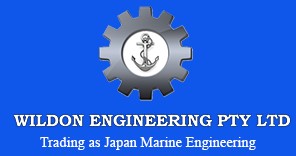Factors to Look for in Industrial Power Engines (Yanmar)
Blog | October 24th, 2018Reliable by design, industrial power engines are built to output pure uninterrupted mechanical energy for hour-upon-hour. From the moment the work day begins to the moment the worker’s clock out at day’s end, that industrially-classed prime mover performs with equipment-optimized power, kicking out its smoothly regulated radial energy. Here, just to underline that reliability factor, are a short list of the features client’s demand out of their heavy-duty engines.
Distinguished Yanmar Performance
This is a no-brainer, but it’s also a fact that can’t be overlooked. In plain speak, without any embossment whatsoever, the Yanmar name carries great weight. Heavy-duty engines, loaded with industrial-class features, operate reliably when they’re sourced from branded vendors. In terms of top-tier branding, the Yanmar name is known far and wide in boating circles and engineering applications. And not only in small sailboats, for Yanmar powerplants occupy pride of place in ocean liners and massive freight carrying vessels.
Factoring the Fluid System
Like the heart of a thoroughbred, the pumps and fluid reservoirs in a Yanmar-manufactured industrial engine supply lubricants, coolants and fuel to key moving components. The fuel runs clean, without soot deposits or nasty exhaust emissions. The engine cylinders and pistons, although beautifully engineered, use their high-tolerance contact points all the more efficiently when they slide smoothly past one another because of an oil transmitting mechanism that endures, even when system temperatures climb high. Coolants, water-pumped from the ocean or pumped directly out of an equipment-affixed reservoir, work with intercoolers and turbines to keep the engine core cool and functional, no matter the load. Pumped through a set of system arteries, the equipment works efficiently, so its operational lifespan grows.
Fit For Every Industrial Application
Yanmar engine architectures output extraordinary quantities of power. That radial force then passes through complex gear trains, speed reducers and fluid mechanisms. Arriving at piles of industrial machinery, sized output energy drives ship systems, land-based production lines, and countless other heavy-duty machinery. The engine, sourced from a series of brawny prime movers, has the cylinder numbers and sizes to satisfy any conceivable industrial base. Engine block size, diesel-fueled torque, filters and fluid ancillary systems, the machinery here really does function like a living body, one that just needs some maintenance from time-to-time.
Maximum uptime, peerless diesel-fueled reliability, and uninterruptible power, that’s what the industrial sector demands from its equipment vendors. Designed with application in mind, Yanmar engine planning principles take the application loading effects back to the drawing board, where emission exhaust solutions, efficient diesel fuels and ultra-capable engine architectures are fashioned so that they expressly suit desired industrial usage domains.
Optimized by NetwizardSEO.com.au
Recent Posts
- Yanmar Diesel Generators: Planned vs Predictive Maintenance Strategies for Remote Operations
- Mareflex SOLAS Marine Tapes: Safety Applications on Marine Vessels
- Yanmar Propulsion Systems: FPP vs CPP Propellers for 6EY and 6N Series Fuel Efficiency
- Mitsubishi K.K. Purifier Separator: The Key to Cleaner Fuel and Smoother Operations
- Kemel Air Seal Retrofits: Leak-Free Stern Tube Seals and Reduced Lube-Oil Risk
- Yanmar Auxiliary Generators: Sizing for Reefers, Hotel Loads, and Dynamic Positioning Systems
- Water Lubricated Stern Tube Bearing (EVR): Proven Technology for Smooth and Quiet Operations
- Marine Spare Parts Australia: Genuine Components for All Vessel Types
- Yanmar Diesel Generators – Powering Remote and Off-Grid Operations
- Authorised YANMAR Parts Supplier in Australia – Genuine Components Guaranteed
